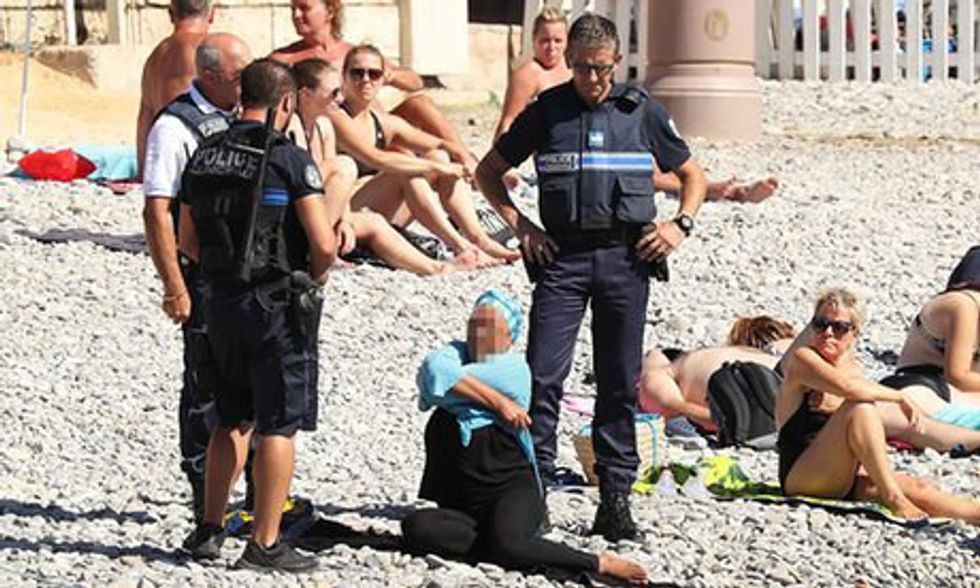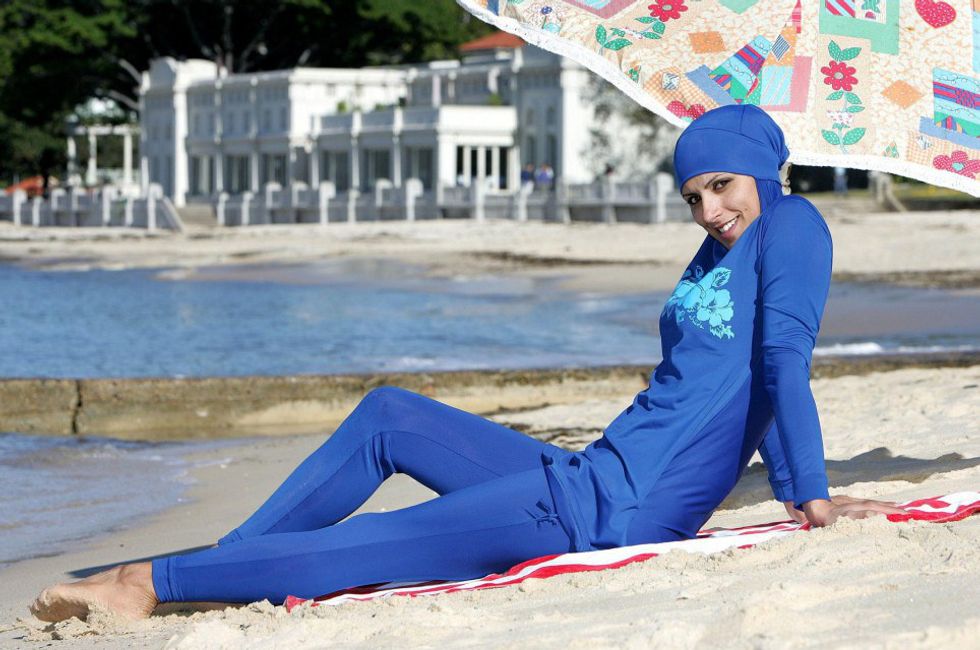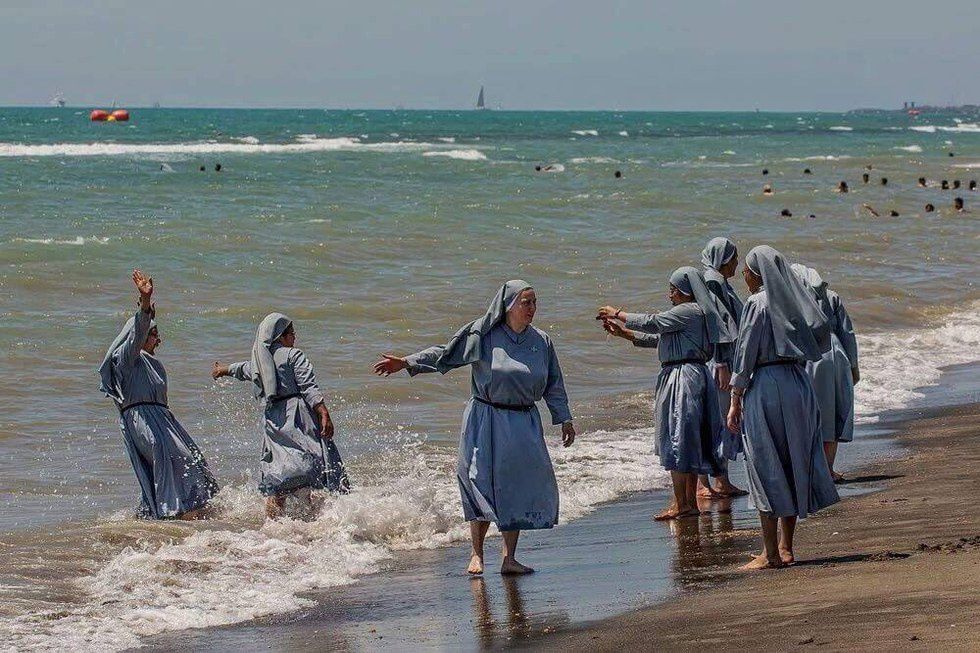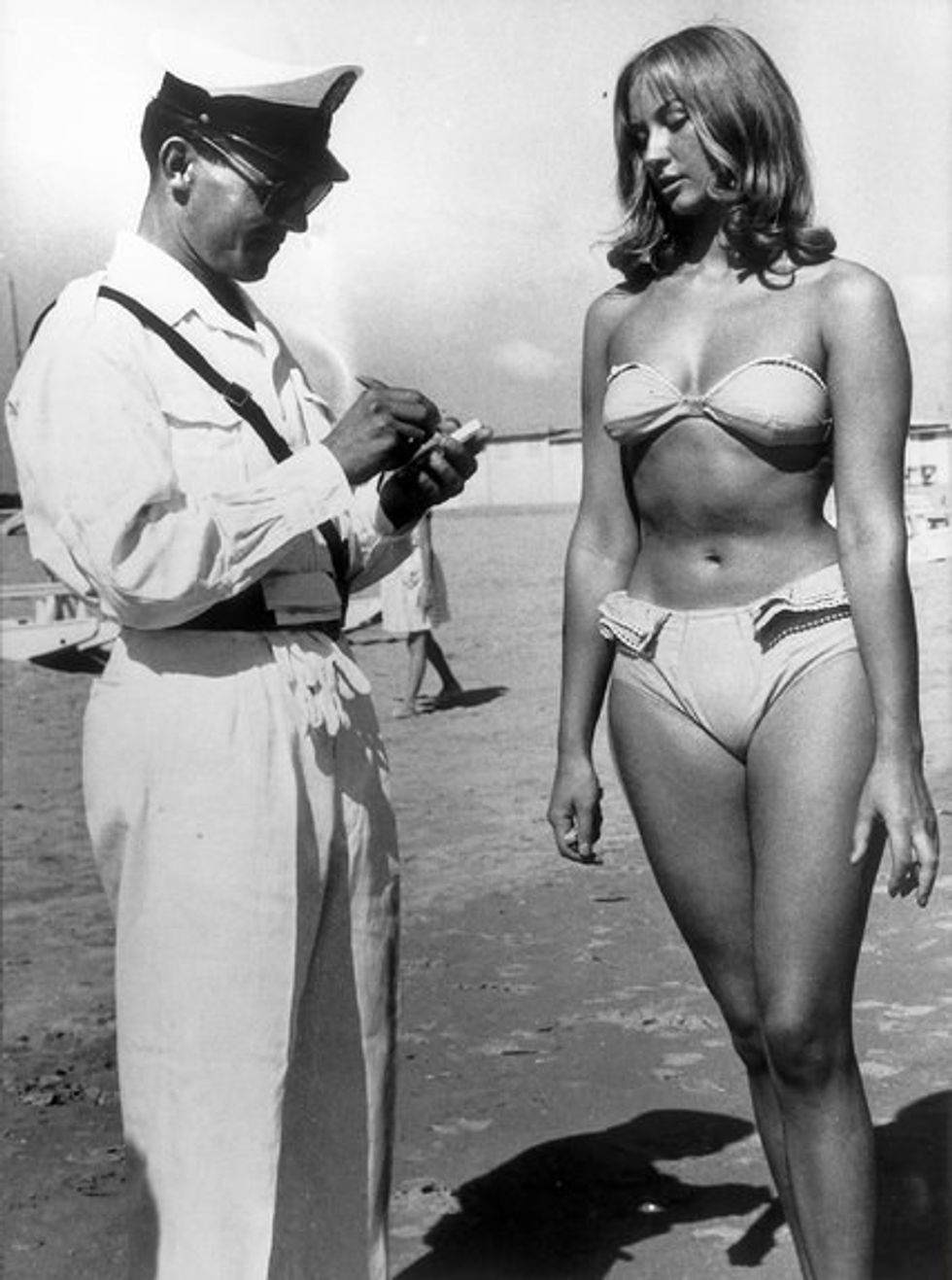Friday France’s highest court, the Council of State, found that the “Burkini Ban”, adopted by several southern towns in France, "seriously and clearly illegally breached fundamental freedoms".
After the terrorist attacks on Bastille Day in Nice which claimed the lives of over 80 people and the stabbing of a French priest in the north of France, the climate in the European country has only stirred up popularity for the right and far-right political parties. Recently, towns along the southern coast of France have begun implementing a ban on the Burkini, a swimsuit that cover the full body except hands and face, as well as beachwear, which “ostentatiously displays religious affiliations”.
The overruling comes days after a woman was fined and harassed in front of her children by armed French police in Nice for wearing a hijab and leggings. This demonstrates a lack of professionalism not only by the authorities but the towns of southern France that believe the correct way to retaliate against Islamist extremism is through waging a campaign that stands to liberate the “oppressed Muslim woman”.
The Muslim woman is not an oppressed being; she is submissive to her god just like any other devout follower of a religion. Politicians and local lawmakers from the town with the controversial law believe the “Burkini Ban” progresses women’s equality, eliminates Muslim women from living an “oppressed” life and disparages support for Islamic extremism. That is absurd.
To think that there are people in power, who are using women’s equality to advance the oppression of the Muslim people, because they do not wish to understand or respect another’s religion because it is not understood, is shameful.
France is a nation, like the United States, which separates the powers of the church and the state in what is called laïcité or secularism. Secularism in France allows politics and governments from mixing with religious organizations and ideals, in order to preserve and protect the freedom of thought, expression and obviously, religion. Yet, it seems as if southern France is misinterpreting secularism and using it as a weapon to target a specific religious group. Wouldn’t that be considering mixing politics and religion? If you don’t agree with the customs of a religion you make a law that targets them? Not so laïcité if you ask me.
Why are the Catholic nuns who wear their habits to the beach not in violation of the French secular laws or not held to the same standards as Muslim women in their Burkinis? Why is a surfer not harassed for wearing a wetsuit, which covers him from head to toe? Obviously the latter ARE wearing outfits that represent good morals and secularism, but recent terrorist attacks of this summer are affecting greatly the political and communal response towards Muslims in cities all over France and the rest of the world.
It is ironic that as women we are now being fined and harassed because we are wearing too much clothing, but a century ago, it was the complete opposite. When Frenchman Louis Réard first designed the bikini in 1946, it was utterly pornographic to the puritan society of the twentieth century.
Here, in the U.S., a thong bikini bottom or going topless (to avoid tan lines) is still reprimanded by lifeguards and beach police throughout the American coastlines. Americans traveling abroad on vacations usually find it shocking to see breasts and even the occasional phallic member lounging on the beaches of Europe or the Caribbean.
The control and oppression of the female body affects the online world as well. Social media platform, Instagram does not embrace the female nipple and instead deems it an obscene, lewd, indecent act banning the photograph and at times the user from the community. Nonetheless, if you were blessed enough and born with an X and Y chromosome, then your nipples are quite all right.
In it’s guidelines and policies, Instagram takes the following stance on nudity:
“We know that there are times when people might want to share nude images that are artistic or creative in nature, but for a variety of reasons, we don’t allow nudity on Instagram. This includes photos, videos, and some digitally created content that show sexual intercourse, genitals, and close-ups of fully nude buttocks. It also includes some photos of female nipples, but photos of post-mastectomy scarring and women actively breastfeeding are allowed. Nudity in photos of paintings and sculptures is OK, too.”
How intertwined and contradicting must all these rules and regulations become until the lawmakers and media conglomerates realize it is not their bodies, it is not their lives, and it is not in their power to control what we do or do not wear as women.
Remember, a short dress or crop top does not cause rape just like a burkini or niqab does not cause terrorist attacks to occur.























